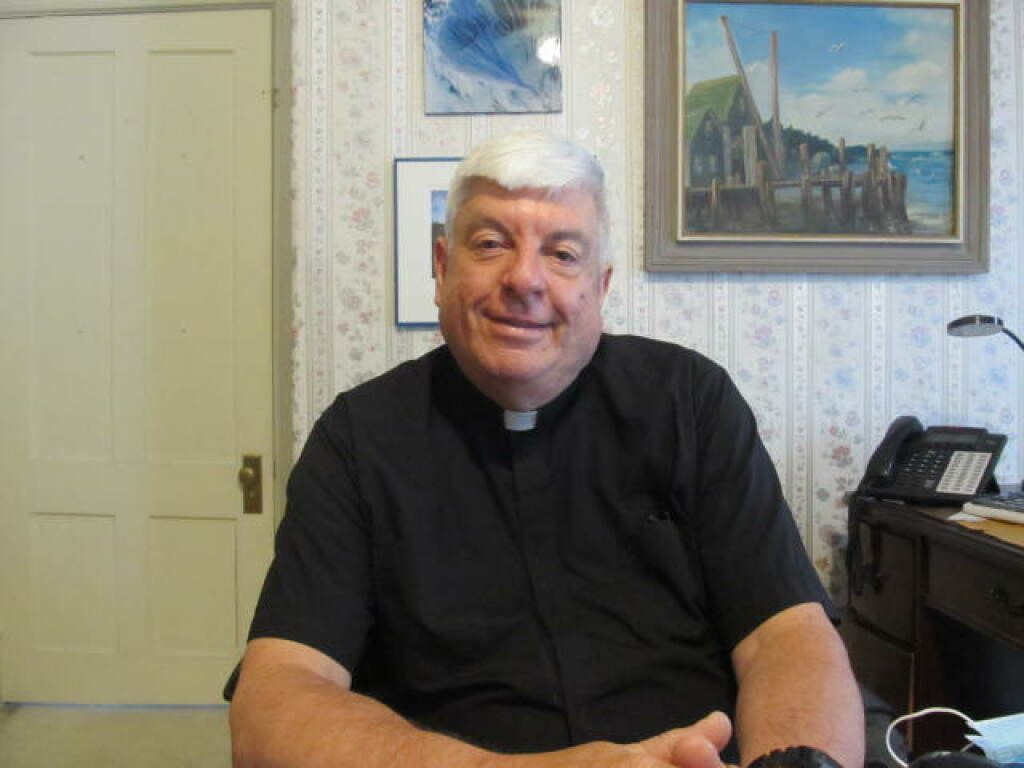 Compassion, Not Mere Pity
Compassion, Not Mere Pity
I want to focus on one phrase of today’s gospel. It says that when Jesus saw the crowd he was “moved with pity”. Actually, in Greek, it’s a very unusual word, a much stronger word, meaning something like “moved in the bowels”. In other words, Jesus had such compassion for the crowd that he was punched in the stomach when he saw what condition they were in. So there is something more than mere “pity” going on here. Having pity is nice, but it doesn’t go far enough. Let’s spend some time analyzing this compassion that Jesus felt.
First, compassion can be felt at an early age. An incident involving Babe Ruth illustrates that. Babe Ruth hit 714 home runs during his baseball career and was playing one of his last major league games. But he was no longer as agile as he had been. He fumbled the ball and threw badly, and in one inning alone his errors were responsible for most of the five runs scored by Cincinnati.
As Babe walked off the field and headed toward the dugout after the third out, the fans yelled and booed. Just then a boy jumped over the railing onto the playing field. With tears streaming down his face, he threw his arms around the legs of his hero. Ruth didn’t hesitate for a second. He picked up the boy, hugged him and set him down on his feet, patting his head gently. The noise from the stands came to an abrupt halt. In fact a hush fell over the ballpark. The fans saw two heroes that day: Ruth, who, in spite of his dismal day, could still care about a little boy; and the small lad, who cared about the feelings of another human being. Both had melted the hearts of the crowd.
Compassion can also be found in great and powerful leaders. There is a story about the late Sam Rayburn, a former Speaker of the House of Representatives. One of his friend’s daughters was critically injured in a car accident and early the next morning Rayburn knocked on his friend’s door. “I just came by to see what I could do to help,” he said. The father replied that there was nothing to do. “Well,” Rayburn said, “have you had your morning coffee yet?” The man said that he had not taken time for breakfast. While Rayburn was working in the kitchen, his friend came in and asked, “Mr. Speaker, I thought you were supposed to be having breakfast at the White House this morning?” “I was,” said Rayburn, “but I called the President and told him I had a friend who was in need and that I couldn’t come to the White House.” What a different world this would be if we could learn to become more caring and unselfish—if we practiced compassion.
Of course, you have to see a need before you can be compassionate. There was a man everyone knew as “Old Bill.” He was hired as a school crossing guard. Every morning and every afternoon “Old Bill” manned his corner, leading the children across the street, back and forth, to school and home. Mrs. Franklin, who happened to live on the corner, got into the habit on hot afternoons of bringing Bill a tall, cold glass of fresh lemonade and a few cookies. Bill thanked her shyly and waited for the children.
Then one day there was a knock at Mrs. Franklin’s side door. There stood “Old Bill” with a sack of peaches in one hand and a dozen fresh-picked ears of corn in the other. He seemed embarrassed as he said, “I brought you these, Ma’am, for your kindness.”
“Oh you shouldn’t have,” exclaimed Mrs. Franklin. “It was really nothing, but some lemonade and cookies.” Then the crossing guard said, “Maybe it wasn’t much to you. But, Ma’am, it was more than anyone else did for me. So, thank you.”
Sometimes, compassion can be truly heroic. Many years ago in the Kingdom of Jordan, two Bedouin youths got into a fight, tumbling to the ground in their fury. One boy pulled out a knife, plunging it fatally into the other’s chest. In fear he fled across the desert, fled from the boy’s vengeance-seeking relatives, fled to a Bedouin sanctuary, called a “tent of refuge,” designed by law for those who kill unintentionally or in the heat of anger.
At last he reached the refuge, a black-tented encampment of a nomad tribe. The boy flung himself at the feet of the leader, an aged sheik, and begged him: “I have killed in the heat of anger. I implore your protection. I seek the refuge of your tent.” “If God wills,” the old man responded, “I grant it to you, as long as you remain with us.”
A few days later the avenging relatives tracked the fugitive to the encampment. They described the assailant to the sheik and asked, “Have you seen this man? Is he here? For we will have him.” “He is here,” said the sheik, “but you will not have him.”
The relatives demanded that he be turned over. “No! The boy has my protection,” said the sheik. “I’ve given my word, my promise of refuge.” “But you don’t understand,” the relatives implored. “He killed your grandson.” The old man was silent. No one dared to speak. Then, in visible anguish, with tears running down his cheek, the old man stood up and asked, “My only grandson. Is he dead?” “Yes, your only grandson is dead.” “Then…” said the sheik, “then this boy will be my grandson. He is forgiven, and he will live with us as my own. Go now; it is finished.”
In the case of Jesus, as with this sheik, they felt what happened in the very bowels of their being, punched in the stomach. What they showed was far more than pity. They were being compassionate.
Pity stands at a safe distance, barely noticing, not wanting to get its hands dirty. But compassion leads to action—like a young boy hugging his hero at a ballpark, a Speaker of the House preparing breakfast for a distraught friend, a woman bringing cookies and lemonade to an old man, a sheik offering a new life to a young man who, in the heat of anger, killed his only grandson. Compassion wants to help, to show love, to bring relief, to provide healing, to offer mercy and forgiveness. It doesn’t stand at the sidelines of life. Compassion says, even from the cross, “Father, forgive them, for they know not what they do.” Compassion imitates the Good Samaritan who, upon seeing a man bleeding at the side of the road, does not close his eyes, pretending not to see, but reaches out to a fellow human being in need.
So if you see someone in need, or someone being maltreated, and you feel pity, that’s a start. But today’s gospel asks for more: to imitate Jesus, you don’t just move on. Let the poverty hit you, let the injustice kick you in the gut. The word “compassion” comes from two Latin words that literally mean “to suffer with”. That’s what Jesus felt in today’s gospel, and it is what the gospel challenges us to feel, and then to have the courage to act. The journey from pity to compassion is one that moves us from the sidelines to the very heart of life, from indifference to conviction, from mere pity to genuine love.




